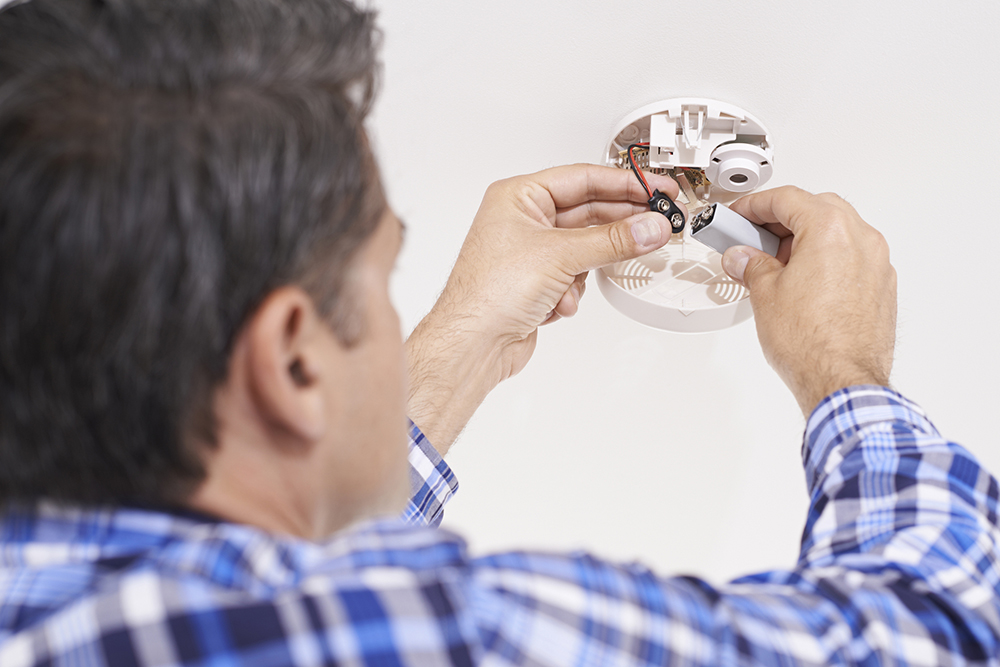Know the Drill: Fire Prevention Tips for Seniors

According to the Federal Emergency Management Agency (FEMA), starting at age 65, people are twice as likely to be victims of a fire. With age comes reduced mobility, hearing and vision loss, and cognitive confusion, all of which make it more difficult to react to an emergency like a fire.
The good news is that you don’t have to become a statistic: learning these practical fire prevention tips will help keep you safe.
- Mind your butts
Fires caused by smokers kill more older adults than other fire-related accidents. These types of fires often happen because seniors forget to put out their cigarettes or smoke in unsafe areas.
If you smoke, follow these life-saving tips:
- Use water to extinguish the cigarette to make sure all embers are snuffed out
- Never smoke in bed
- Don’t smoke while using an oxygen tank
- Smoke outside whenever possible
- Fully extinguish the butt when you’re done
- Use heavy ashtrays, not cheap, plastic ones, to ensure they don’t fall off tables
- Use space heaters sparingly
Space heaters can keep you warmer but they are also serious fire hazards. If you must use a space heater, do the following:
- Place heaters in the middle of a room, away from furniture, curtains, and other flammable objects
- Plug a space heater into an outlet, not a power strip or an extension cord
- Unplug the space heater when you leave the room
- Purchase a space heater that has an automatic-off feature if it gets knocked over
- Ensure smoke alarms work
Every room in your home should have a smoke detector. You should also install smoke detectors in stairways, hallways, basements, and garages. When your home has working smoke alarms, you have twice as much chance of surviving a house fire.
The best smoke alarms are interconnected. If one goes off, so does the other. This system ensures you hear the smoke alarm no matter where you are in the house. Consider installing smoke alarms with low-frequency audible signals if you have trouble hearing.
Test the smoke alarms monthly to make sure they work. Modern smoke alarms make it easy to perform a test. Just push the test button on the device.
- Have your wood-burning fireplace cleaned
If you have a wood-burning fireplace to heat your home, have it cleaned and inspected once a year. Soot buildup in your chimney can cause fires when embers move through the chimney. If the chimney has cracks, this can cause a fire too.
- Practice fire safety in the kitchen
Many older adults experience burns and other fire-related injuries from cooking. The good news is that these problems are preventable. When cooking, follow these tips:
- Stay in the kitchen when cooking anything on the stovetop
- If you have to leave the kitchen, turn off the burners on the stovetop
- Stay home while cooking food
- Use a pot lid, not water, to extinguish a grease fire
- Keep pot handles on the stovetop turned backward to prevent them from being knocked over
- Avoid wearing loose clothing while cooking
- Keep a fire extinguisher in the kitchen
- Schedule a heat inspection
Before the heating season starts, have your heating equipment cleaned and inspected. Fires can form when there’s soot buildup inside the indoor air handler.
If you have a gas-powered heater, have the pilot light sensor and ignition checked for damage that could cause dangerous gas leaks.
- Practice electrical safety
If you live in an older home with an outdated electrical system, your home is at greater risk of experiencing an electrical fire. Consider having the wiring updated to lower the risk. Also, follow these electrical safety tips:
- Minimize extension cord usage and have an electrician install new outlets
- Use the correct wattage when replacing bulbs
- Replace loose outlets
- Replace two-prong outlets with three-prong outlets
- Ensure ground-fault circuit interrupter (GFCI) outlets are installed near water sources
- Consider installing arc-fault circuit interrupters (AFCIs) to prevent arc-fault
Plan your escape
The best way to survive a fire is to plan an escape route. Know how you’ll get out of the home. If you live in a senior community, ask the staff to share the fire escape plan with you. A fire is always upsetting and scary, but you can survive one calmly and safely when you have a plan and know which direction to head.
With a history of excellence spanning more than 100 years, Springpoint Senior Living is a trusted leader in senior housing and continuing care. Find out what the Springpoint Advantage means to you and your loved ones.
